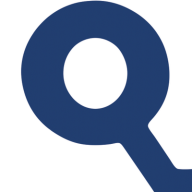

Quotium Seeker and SonarQube compete in application security and code quality. SonarQube often leads due to its extensive feature set that justifies its higher cost.
Features: Quotium Seeker offers automated security testing to detect vulnerabilities early, making it valuable in development. It also focuses heavily on security, providing reliable protection for code. SonarQube provides comprehensive code quality analysis across multiple languages. It offers actionable insights for improving code maintainability and reliability, with a feature-rich portfolio serving diverse development needs.
Ease of Deployment and Customer Service: Quotium Seeker features a straightforward deployment process with attentive customer service, ensuring seamless integration in security environments. SonarQube, while also smooth to deploy, benefits from a robust support community that aids in troubleshooting and resolving technical issues, leading to efficient integration.
Pricing and ROI: Quotium Seeker is recognized for reasonable initial costs and a positive return on investment due to its focused security capabilities, appealing to security-focused enterprises. SonarQube demands a higher initial investment but its extensive features provide significant long-term value, offering a high return on investment for organizations needing comprehensive code quality and security management.
| Product | Market Share (%) |
|---|---|
| SonarQube | 19.2% |
| Quotium Seeker | 0.3% |
| Other | 80.5% |
| Company Size | Count |
|---|---|
| Small Business | 41 |
| Midsize Enterprise | 24 |
| Large Enterprise | 79 |
The Seeker solution helps businesses find high-risk security weaknesses while fostering collaboration between development and security teams. It exposes vulnerable code and ties it directly to business impact and exploitation scenarios, providing a clear explanation of risks. By accelerating adoption of security testing technologies into the software development lifecycle (SDLC), customers across industries such as financial, health, energy and retail can get to market faster with increased stability and certainty.
SonarQube provides comprehensive support for multi-language development, custom coding rules, and quality gates, integrated seamlessly into CI/CD pipelines. It empowers teams with clear insights through intuitive dashboards, identifying vulnerabilities, code smells, and technical debt.
SonarQube is renowned for its extensive capabilities in static code analysis, making it an invaluable tool for maintaining code quality. By fully integrating into development processes, it allows organizations to manage vulnerabilities and ensure compliance with coding standards. Its extensive community and open-source roots contribute to its accessibility, while robust dashboards facilitate code quality monitoring. Despite its strengths, feedback suggests enhancing analysis speed, better integration with DevOps tools, and refining the user interface. Users also point to the need for handling false positives effectively and expanding on AI-based features for dynamic code analysis.
What are SonarQube's main features?In industries like finance and healthcare, SonarQube aids in obtaining regulatory compliance through rigorous code quality assessments. It is implemented to enhance cybersecurity by identifying potential vulnerabilities, while ensuring code meets the stringent standards demanded in these fields. As part of a broader development ecosystem, its integration in CI/CD pipelines ensures smooth and efficient software delivery, catering to phases from code inception to deployment, effectively supporting large-scale and critical software applications.
We monitor all Application Security Tools reviews to prevent fraudulent reviews and keep review quality high. We do not post reviews by company employees or direct competitors. We validate each review for authenticity via cross-reference with LinkedIn, and personal follow-up with the reviewer when necessary.